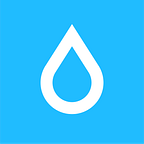This Earth Month, Splash is reflecting on the UN’s Sustainable Development Goal 6 and how critical clean water and sanitation are to all people on Earth. As governments and civil society work to harness political will and global support to combat climate change, Splash is focused on building resilient communities in Addis Ababa, Ethiopia, and Kolkata, India, by making sure kids in urban poverty have clean water to drink and soap to wash their hands while at school, reducing death and disease in underserved communities. In these two cities, tourists can typically access safe water, clean toilets, and soap, while children studying at the local school around the corner cannot.
Every week, three million people migrate to cities in search of better economic opportunities and new beginnings (IOM). In many parts of the world, people are migrating away from rural landscapes stricken with drought induced by climate change and other natural disasters.
As we look to make cities more livable, Splash focuses on children because they are the most vulnerable to waterborne illness (UNICEF). We work in government schools as they typically serve the urban poor and are the nexus of every community. By improving sanitation, expanding access to clean water, promoting handwashing with soap, and strengthening menstrual health services in schools, we help to transform behaviors, reduce absenteeism, decrease the spread of disease, and increase the overall health of the children we serve.
WHO and UNICEF have recommended an increased focus on water, sanitation, and hygiene (WASH) interventions in schools because large numbers of people frequent these institutions. The risks associated with inadequate WASH in these settings are high — diseases may be transmitted more easily and have more serious impacts on vulnerable groups. And yet, “the latest data from the WHO/UNICEF Joint Monitoring Program reveal that 43% of schools around the world lacked access to basic handwashing with soap and water in 2019 — a key condition for schools to be able to operate safely in the midst of the COVID-19 pandemic” (UNICEF).
Through Project WISE — WASH in Schools for Everyone — Splash aims to reach 100% of government schools in Kolkata and Addis Ababa, serving one million kids by 2023. In Kolkata, there is plenty of water, but the water is often contaminated. In Addis Ababa, the primary issue is water scarcity — in this rapidly growing capitol city, water supply is not keeping pace with demand.
Project WISE is designed to address three basic issues around water:
- Water needs to be clean — We install commercial-grade water filtration systems that remove 99.9999% of bacteria and viruses, including those that cause diarrhea and other illnesses. We also work on sanitation infrastructure to remedy sources of contamination.
- Water needs to be present — We ensure schools have sufficient water storage so they can capture water when it is available. This can include big storage tanks, elevated towers to allow for pressurized water flow, and associated plumbing.
- Water needs to be accessible — The reality at a lot of schools is that they may only have one tap for drinking water or dilapidated handwashing stations with broken taps. Kids aren’t able to access water for drinking and handwashing when they need it. We provide child-friendly drinking and handwashing stations to ensure kids have access whenever they are thirsty or need to wash their hands.
Splash recognizes that our water solutions depend on water availability, which is increasingly a challenge in South Asia and Africa, where we are focused. We applaud and cheer on all of the efforts of governments, NGOs, and individuals to ensure that cities have sufficient freshwater resources.
Protecting our planet and natural resources is social justice. Climate change disproportionately impacts people of color and vulnerable communities around the globe. Together, we can address the world’s growing inequities while creating a more just and sustainable world for all.
